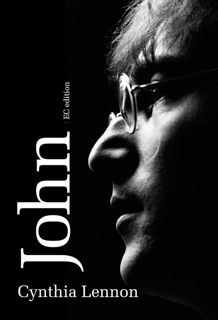On April 7, 1963, soon after the Beatles released Please Please Me, Cynthia Lennon lay in a public maternity ward at Sefton General Hospital, in Liverpool, England. It had been a lonely pregnancy: John hadn’t been around much, and, having been told that her existence might jeopardize the band’s success, Cynthia had mostly stayed home “knitting bootees” for the future Julian Lennon. Men weren’t as involved in childbirth in those days. As she approached her second day of labor, the Beatles performed in Portsmouth and the woman in the next bed screamed for her mother.
Julian was born the next morning. When John showed up, days later—“Cyn, he’s bloody marvelous!”—he had them moved to a private room, but it featured a window overlooking a corridor full of onlookers. “The room felt like a goldfish bowl and it was obvious John couldn’t stay long,” Cynthia writes in her second memoir, John. “He hugged me and signed dozens of autographs on his way out.”
John and Cynthia had fallen madly for each other as students at the Liverpool College of Art, where he’d been a sharp-tongued teddy boy and she a prim, shy girl with dreams of a quiet life teaching art. She bleached her hair like his dream girl, Brigitte Bardot, and he wrote her heartsick letters (“I love you like GUITARS”). She was thrilled to witness the rise of the Beatles, but the bigger they got, the less she saw of her man.
In swinging London, Cynthia felt like “a naive girl who had simply gotten lucky and didn’t deserve to be there.” She hoped John would come round to domesticity, but by the time the Beatles stopped touring, he was restless and, thanks to LSD, more at home in dimensions she couldn’t access. Meditation had seemed like something that might bond them, but when the Beatles set off for a retreat in Bangor, Wales, in 1967, she fell behind with their luggage. The train departed, leaving her weeping on a platform popping with flashbulbs. “The incident seemed symbolic of what was happening to my marriage,” she wrote. “John was on the train, speeding into the future, and I was left behind. As I stood there, watching the train disappear into the distance, I felt certain that the loneliness I was experiencing on that platform would become permanent one day.”
By then he’d met Yoko Ono, whom Cynthia had felt more puzzled than threatened by until, in the spring of 1968, she returned home from a holiday in Greece to find the artist on the floor of their sunroom, wearing, as Cynthia recalls, Cynthia’s robe. Within a month, the new couple was public and beaming, and Cynthia...
You have reached your article limit
Sign up for a digital subscription and continue reading all new issues, plus our entire archives, for just $1.50/month.
Already a subscriber? Sign in





